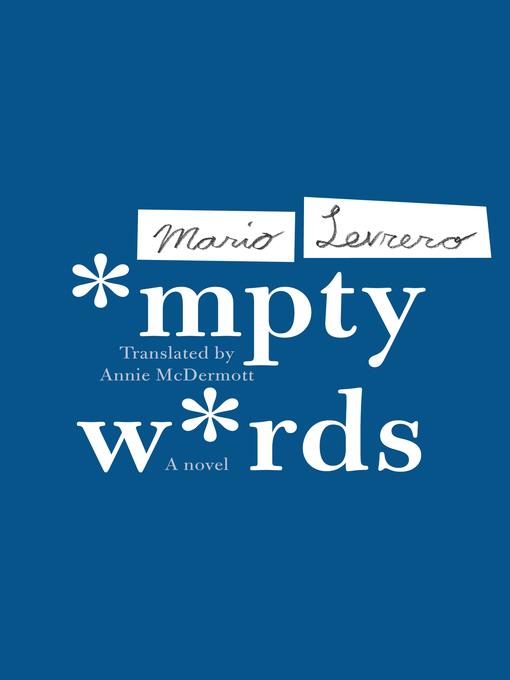
Empty Words
فرمت کتاب
ebook
تاریخ انتشار
2019
نویسنده
Annie McDermottناشر
Coffee House Pressشابک
9781566895545
کتاب های مرتبط
- اطلاعات
- نقد و بررسی
- دیدگاه کاربران
نقد و بررسی

March 11, 2019
A grumpy writer seeks to focus his mind with handwriting exercises in this charming novel, the first by Uruguayan author Levrero (1940–2004) to be translated into English. Frustrated by his “mindless, scattered days” of attempting to write amid the constant distractions of family life, Levrero’s narrator embraces “graphological self-therapy,” hoping that improving the legibility of his handwriting will translate into an improvement in “my concentration and the continuity of my thoughts.” But as quotidian events such as a maid’s abrupt departure and his partner’s desire for a new house continue to intrude, the narrator realizes that “these exercises are becoming less calligraphical and more literary.” He begins varying them with explorations of his dog’s conflict with a neighborhood cat and of his dreams, but those subjects prove even more distracting. The narrator’s histrionics over his mundane responsibilities may be laughable, but his anxieties and preoccupations are captured with such precision by Levrero that the reader will breathe a sigh of relief whenever the exercises resume after a stress-induced break. “Going back to these exercises is always a first step toward psychological health,” the narrator writes, and it’s hard not to be persuaded that clearly printing one’s S’s and G’s may just be the secret to a happy life, after all.

July 1, 2019
Change your handwriting, change your life: an enigmatic 1996 novel, his first to be translated into English, by Uruguayan writer Levrero. In Latin America, there's a literary saw that says that Mexico produces novelists, Chile poets, and Uruguay "strange ones." So notes translator McDermott in her scene-setting introduction to this slender story à clef, in which Levrero recounts trying to make his handwriting more calligraphic and, by improving it, to alter bad habits and become an altogether better person. The problem is the solution: He tries to write "empty words," words chosen simply for their power to test the musculature of composition, say with lots of instances of the troublesome letter r in them. By not lifting the pen from the page, Levrero writes, "I think this will help me improve my concentration and the continuity of my thoughts, which are currently all over the place." Write he does, scattered thoughts and all, and amid the humdrum, meaningful compositions begin to emerge, unbidden, tempting the author "to turn my calligraphical prose into narrative prose, with the idea of building a series of texts that, like the steps of a staircase, would carry me back up to those longed-for heights I was once able to reach." More than just an exercise in chasing his own tail, Levrero takes himself into dangerous psychological territory, wrestling with the things that underlie his loopy a's: anxiety builds, he smokes like a chimney, he bloats and becomes listless--and then comes, if not a breakthrough, at least the emergence of some interesting if sometimes unpleasant sketches, marked by second thoughts, strike-throughs, revisions, and other such signs of the alchemy that is writing. Vita contemplativa, vita scripta: What Levrero learns about himself, in the end, is of universal application, and while it's not necessarily cheerful, it allows him to proceed "by means of a kind of spiritual acrobatics." A curious, even eccentric book, and a must-read for fans of post-boom Latin American literature.
COPYRIGHT(2019) Kirkus Reviews, ALL RIGHTS RESERVED.

























دیدگاه کاربران